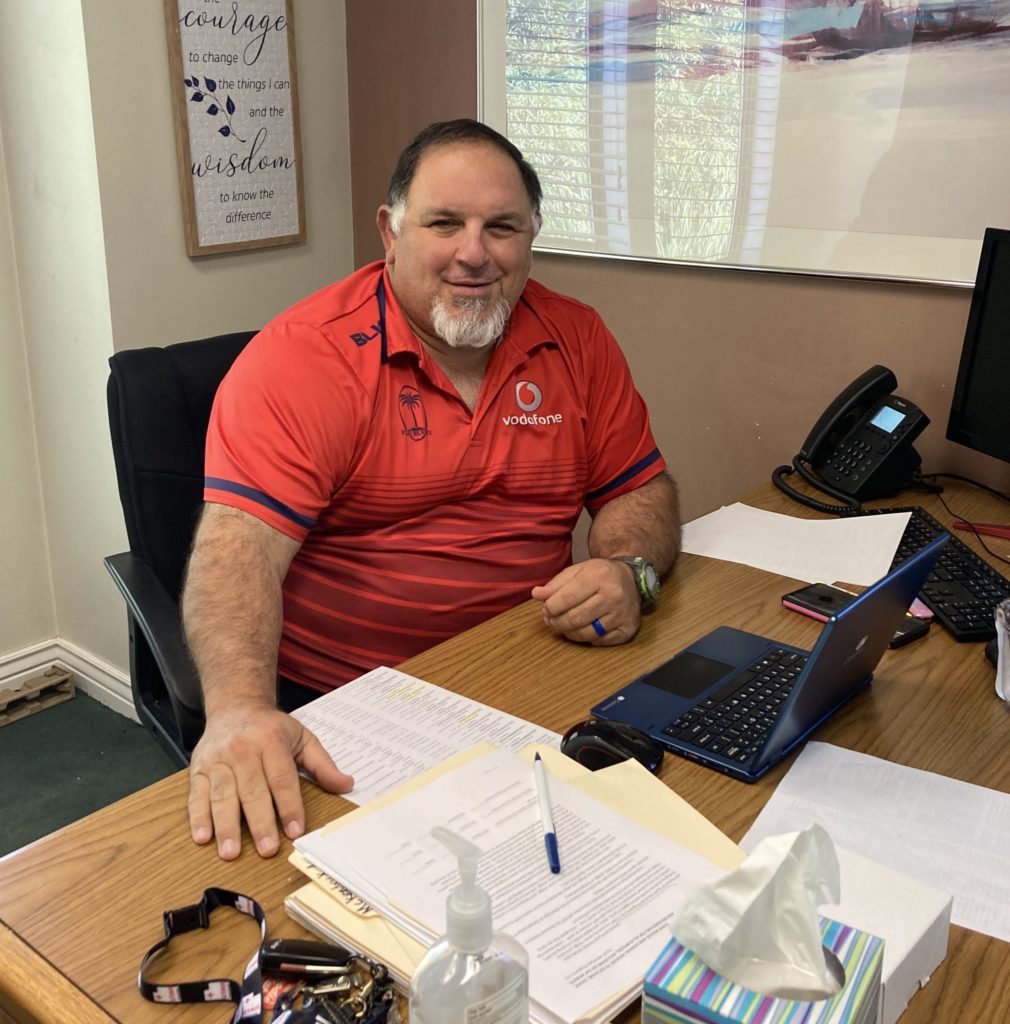Utah – Helping a program participant get a conspicuous tattoo covered up and assisting another youth with getting a mole removed from his face – are just some of the ways Utah’s Youth Advocate Programs (YAP), Inc. credible messengers go above and beyond to help program participants.
The Utah YAP Credible Messenger program connects youth justice system-involved young people with credible messengers, also known as Advocates, who are trained to help program participants see and nurture their strengths. The credible messengers provide individualized services to the youth and their parents/guardians, connecting them to economic, emotional, and educational tools to help them thrive. Utah’s program spans across four counties — Weber, Salt Lake, Davis, and Utah County.
YAP is a national nonprofit in more than 100 communities in 33 states and the District of Columbia that provides community-based services as an alternative to youth incarceration, congregate out-of-home placement and treatment. YAP also partners with public safety systems to combine the nonprofit’s unique wraparound services approach with other evidence-based models to reduce violence. Utah’s Credible Messenger program is a partnership with the Division of Juvenile Justice and Youth Services, which refers youth to YAP for community-based services.
“We have a great relationship with our referring authority,” said Director Nathan Badell. “They are totally committed to helping the youth of Utah reclaim their lives and put their past behind them and move on.”
The program has five full-time and five part-time staff members, most of whom are from the neighborhoods where the YAP participants live.
“The people we have working here are committed to youth,” Badell said. “It’s not your typical credible messenger program,” he added, explaining that the staff’s credibility comes from their shared lived experience with program participants for whom they provide wraparound advocate services.
“Utah’s DJJS has some of the most progressive and passionate staff I have had the pleasure of working with in my 33 years here at YAP,” said YAP’s Chief Impact Officer Patty Rosati who oversees Utah. “They truly get it, and they know their kids deserve ‘a seat at the table.’ I am so impressed by Brett Peterson (Director of Utah DJJS) and his entire leadership team. They know all their youth by name and situation.
YAP Advocates or credible messengers are invested and go out of their way to help the youth and their families, says Office of Community Programs Director Rachel Edwards of DJJS.
“For example, Nathan Badell went and purchased a graduation dress for a youth who earned her diploma and was able to attend the graduation ceremony as well. It has been a great partnership.”
Jill McKinlay, program director of DJJS’ Office of Correctional Facilities said they have been impressed with the credible messengers and their relationship and rapport with the youths.
“One specific example of this is during our Youth Parole Authority Hearings, credible messengers are oftentimes there to support and advocate for our youth,” McKinlay said. “This can be a stressful time for these youth and the presence and support of their credible messenger is really noticed and appreciated. It’s one more person in their corner cheering them on.”
Advocating for Youth and Families
Badell was born in Chicago and grew up in Delaware. He attended college in Utah, and returned to Delaware for 25 years before moving back to Utah. Before joining YAP, most of Badell’s experience was working with foster youth, former foster youth, and young people in traditional and independent living.
“One of the most frustrating things for me personally was we would take care of these children and help build their resilience and my biggest issue was the youth made progress, but the families hadn’t,” he said. “The kids were removed from these unsafe conditions then they were returned to the same dysfunctional families they were removed from.”
That is the main reason, Badell said, that he enjoys working with YAP because it not only helps youth, it also helps their families; that the organization’s mission aligns with his personal beliefs.
“I always felt like we could do more to help the families. Why can’t we invest in the family? It’s a lot cheaper to do that than it is to do foster care,” Badell added. “The government never does a good job at raising kids or families. That always bothered me.”
The Delaware native said he can’t believe it took him so long to find YAP.
“For a lot of these kids their families are hardworking blue collar families and the youth either made a mistake or got involved in gangs or hustling both to support their families and to buy stuff,” Badell said. “I really enjoy what I’m doing, and I get to help several communities in Utah.”
Now that he’s got a year under his belt, Badell credits Rosati and Regional Director David Glenn, for being supportive and helping to coach him through his first 12 months matriculation at YAP.
Glenn said when youth leave secured facilities they often go back to homes and communities where they previously failed, adding, “Utah and YAP understand that relationships and planning need to start before release and continue through the community reintegration process. That’s what makes this partnership so amazing. We can help youth rejoin the community and thrive.”
Badell agrees.
“Helping families ultimately helps communities,” he said. “I am thrilled to be a part of this organization. I am fully committed to being a Yapper for life.”
Learn more about YAP at www.YAPInc.org and follow the organization on Twitter @YAPInc.
